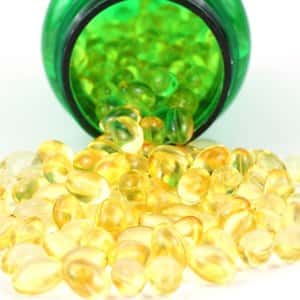
People who have never been diagnosed with cancer may imagine that they will not have to face that problem. Those who have already dealt with a cancer diagnosis can no longer take that stance. Instead, many are urgently concerned with the question of how to prevent cancer recurrence.
Will Vitamin D Help Prevent Cancer Recurrence?
Q. My urologist has encouraged me to keep my vitamin D levels above 50 ever since he treated me for prostate cancer. So far I have not been able to achieve that level. Do you have any suggestions?
A. Epidemiologists have noted for decades that people exposed to more sun are less likely to develop prostate, breast and colon cancer (International Journal of Molecular Sciences, May, 2016). It seems logical to conclude that the vitamin D produced by sun-exposed skin makes the difference.
25-hydroxyvitamin D3 is the compound your urologist wants to see at or above 50 ng/ml in your bloodstream. Studies have shown that low circulating levels of this compound are associated with poor outcomes for a range of cancers, from acute myeloid leukemia (Cancer, Feb. 15, 2014) and melanoma (BMC Medical Genetics, Feb. 16, 2013) to prostate cancer (Journal of Cancer, Jan. 15, 2016) and colon cancer (World Journal of Gastroenterology, Jan. 21, 2016).
How to Raise Vitamin D Levels:
There are two ways to increase circulating vitamin D levels: supplements and sun exposure. Sunscreens block the skin’s ability to make vitamin D. If you have been slathering yourself with sunblock, that may account for your suboptimal vitamin D level.
Researchers have found that supplementation with vitamin D3 can improve prostate cancer outcomes (Journal of Steroid Biochemistry and Molecular Biology, July, 2013). Since you are under a urologist’s care, ask about the most appropriate dose of vitamin D3 for you. Most healthy individuals could take between 2,00o and 4,000 IU daily, but you should confirm that such a dose is right in your situation. In one study of prostate cancer, 4,000 IU helped prevent cancer recurrence (Journal of Clinical Endocrinology and Metabolism, July, 2012). Randomized placebo-controlled trials now underway will provide much-needed data (Journal of Cancer, Jan. 5, 2016).
We are sending you our Guide to Vitamin D Deficiency so that you can learn more about how to get adequate amounts of this critical nutrient. Some people report that taking their vitamin D3 pills after dinner is more effective than swallowing them on an empty stomach or before breakfast.

